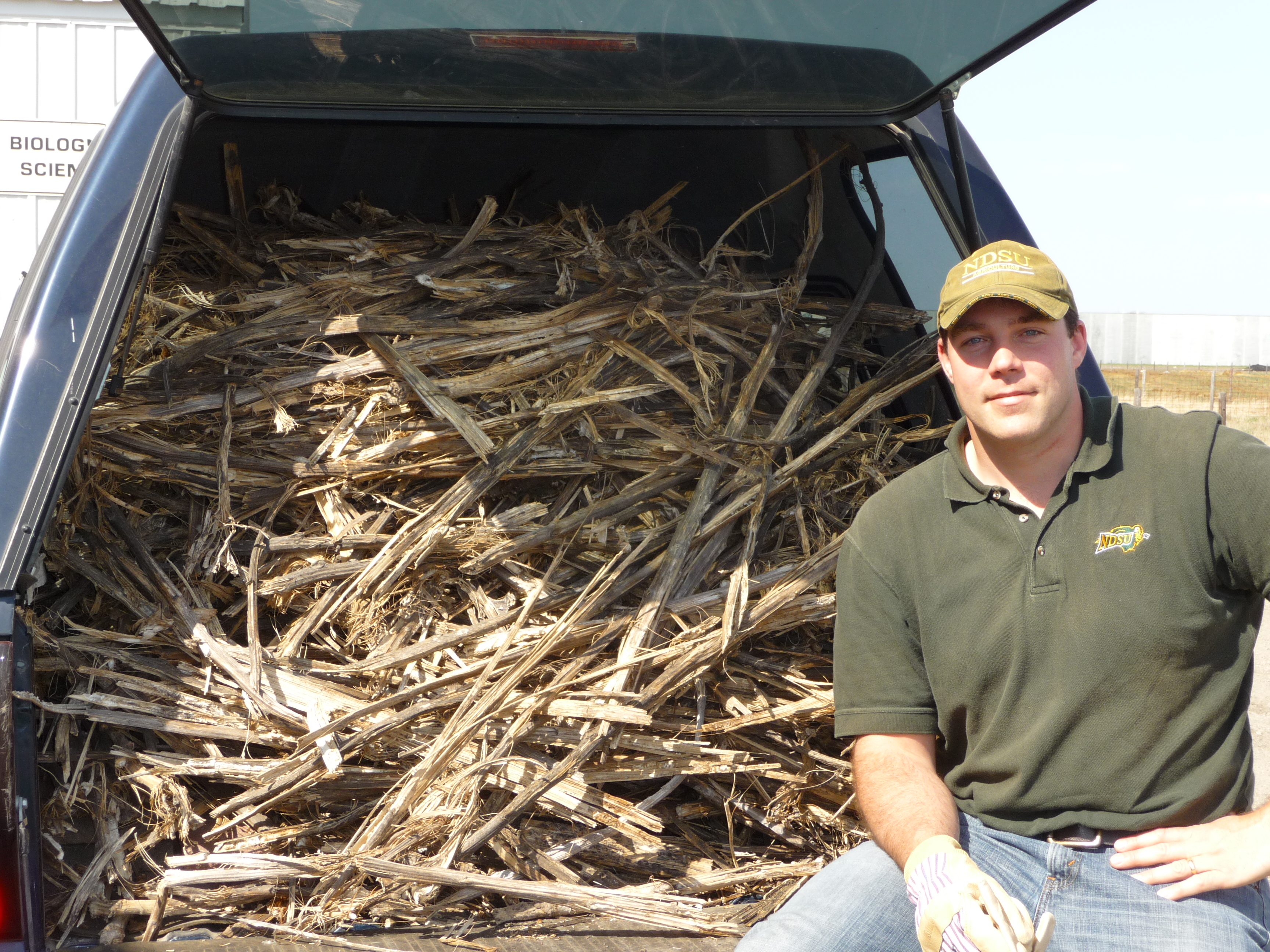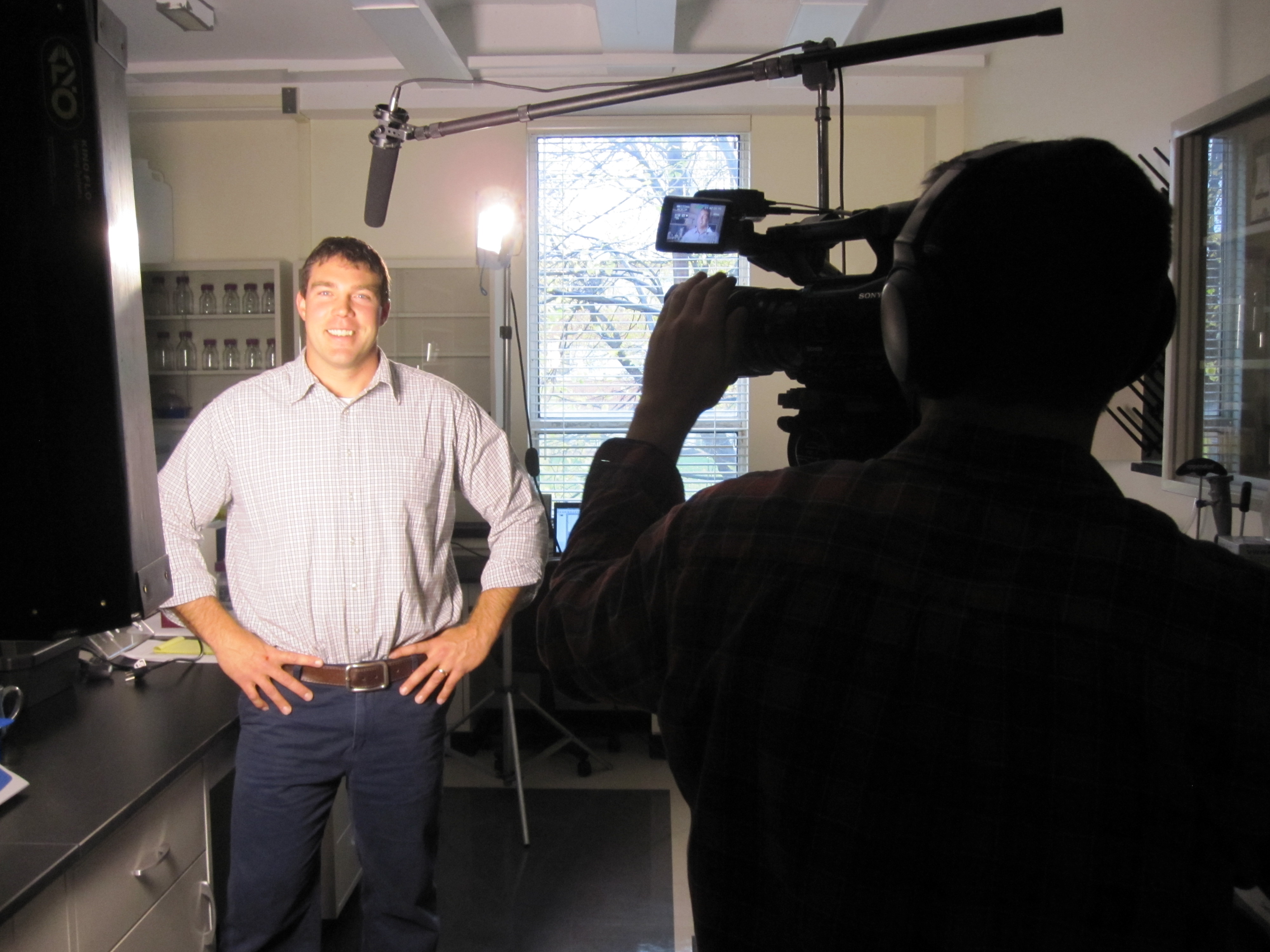Time in that position: 8 years (6 as assistant professor, 2 as an associate professor)
Distribution of Efforts: 90% Extension / 10% Research
Degree held: PhD in plant pathology; M.S in plant pathology, BS in biology
Current commodity assignment: Sunflower, soybean, flax, dry edible beans, canola, pulse crops (pea, lentil, chickpea). 
Typical workload in spring:
Springtime is planning, planting and preparation. By the end of the winter meetings, it is usually pretty clear what the growers need most in the state. We try to address their needs by setting up field trials that can answer the most important questions they have, and when possible can also be used for field days. In addition to planning for growers needs in the state of North Dakota, spring is also a great time to visit other Extension colleagues across the state, and the nation. The planning in spring sets the stage for the next 12 months.
Typical workload in summer:
Summer comes in like a lamb and out like a lion. After planting I will spend time taking some data but also attending commodity group meetings. Between mid-July and mid-August, my phone and email will reach a fever pitch as white mold, rusts, and bacterial blights begin to show up. I try to keep ahead of the questions as best I can, and I will commonly deliver 20 to 30 interviews, write 20 to 30 pest alerts, and often record pod casts and videos in an effort to alert the growers before they know they have a problem.
Typical workload in fall:
Fall is when I tend to write. Once we harvest our field trials, there are about two to three months before I begin speaking at field days. In those months I am analyzing data, writing Extension and research publications, and writing grants.
Typical workload in winter:
Winter in the North Dakota Extension Service is possibly my busiest time of year. Annually, I will give about 50 different talks a year, and 60% of them will happen between January 1st and March 15th. In addition, I coordinate one to three major Extension events annually (typically 2-day events). This tends to also be the time I am working most closely with my graduate students, who may be finishing their degree, planning their first committee meeting or seminar, or traveling with me to a meeting in Florida (if I am lucky!).
Most rewarding thing about working in Extension:
The most rewarding thing for me in Extension is when I can successfully help someone think in a different way. Frequently, this is growers, but there is also great satisfaction in influencing a graduate student or a commodity group. When I can help a grower think in a different way about plant diseases or plant disease management, I have crossed a very important threshold. Anybody can encourage them to change practices to manage diseases better, make more money, etc., but if I can change the way they, think they may make better decisions for years to come. 
Challenges with Extension work; what early career professionals need to know:
Extension is hard work, but what is hard about it is different for everyone. To me, there are a couple things that young professionals should know. Your best laid plans may abruptly change; you simply can’t predict when a grower walks in with a sample, when the head of the national sunflower association calls you with an emergency, or when a graduate student needs help. You are always on point; I see the same farmers I talk to about pathology at football games on campus or visiting our national park five hours to the west. News reporters are your friends; they help get messages out fast, they can make you look great (or terrible), so give them as many leads as you can and always be available. Lastly, take baseline data; you will always be asked to justify your existence, and baseline data will make your life so much easier.
Put into context the way Extension is evaluated at your institution:
Extension is evaluated on productivity and performance. It can be a balancing act between what is visible and what is important. The best advice I can give is to take a step-back and make sure you are accomplishing the big goals. Research and teaching appointments are often evaluated similarly; papers, dollars, students, etc. Take good records of Extension activities, the numbers will add up.
Advice to graduate students and early career professionals who want to pursue a career in Extension:
Everyone that graduates with a Ph.D. in plant pathology has a degree, a dissertation, and three letters of recommendation. Writing an Extension publication(s), giving an Extension talk(s) and attending/speaking at field days will give you a leg up on your competition (other applicants). Similarly, pay attention to other crops and diseases. Most Extension appointments are multiple crops, often crops that you never worked on before.
